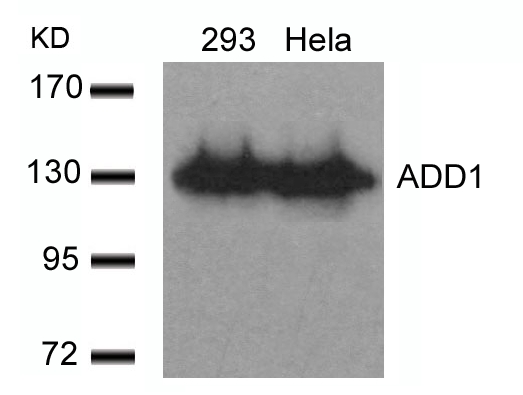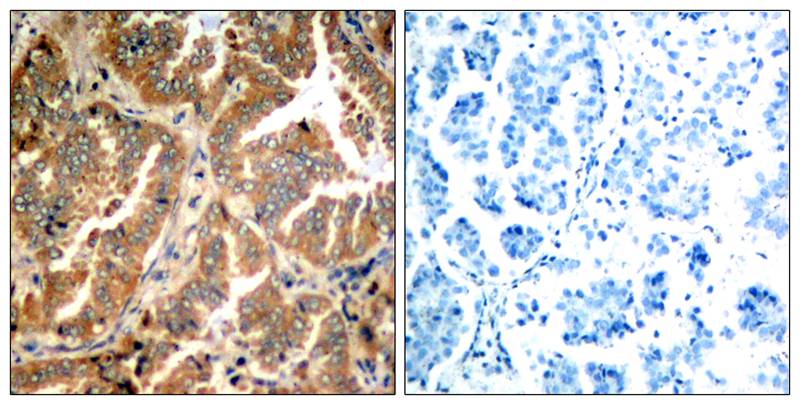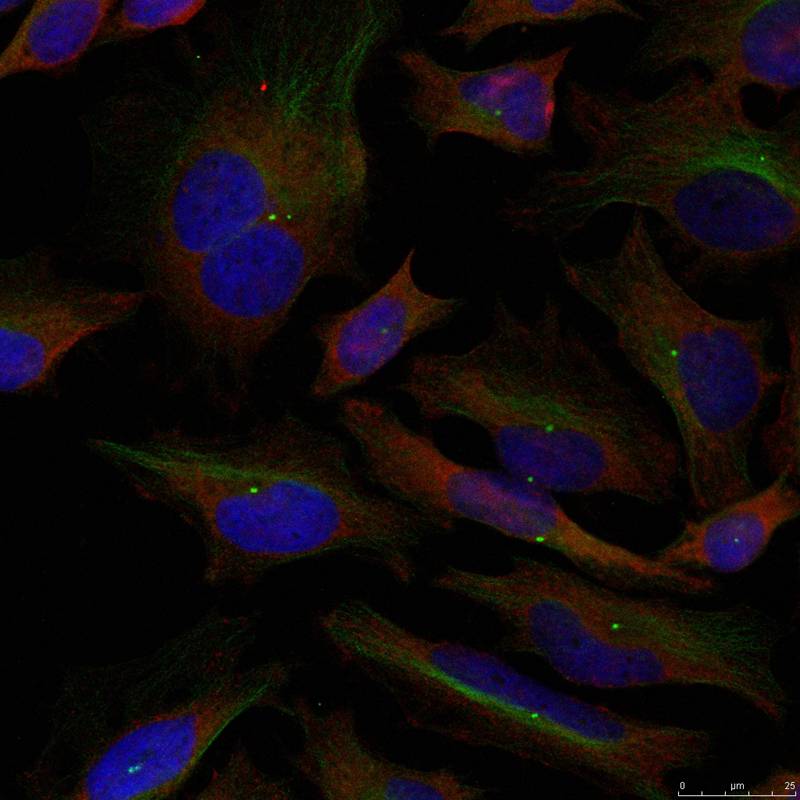Product Detail
Product NameADD1(Ab-726) Antibody
Host SpeciesRabbit
ClonalityPolyclonal
PurificationAntibodies were produced by immunizing rabbits with synthetic peptide and KLH conjugates. Antibodies were purified by affinity-chromatography using epitope-specific peptide.
ApplicationsWB IHC IF
Species ReactivityHu Ms Rt
SpecificityThe antibody detects endogenous level of total ADD1 protein.
Immunogen TypePeptide-KLH
Immunogen DescPeptide sequence around aa.724~728 (T-P-S-F-L) derived from Human ADD1.
Target NameADD1
ConjugateUnconjugated
Other NamesADDA; Erythrocyte adducin alpha subunit;
Accession NoSwiss-Prot: P35611
NCBI Protein: NP_001110.2
Uniprot
P35611
Gene ID
118;
Concentration1.0mg/ml
FormulationSupplied at 1.0mg/mL in phosphate buffered saline (without Mg2+ and Ca2+), pH 7.4, 150mM NaCl, 0.02% sodium azide and 50% glycerol.
StorageStore at -20°C for long term preservation (recommended). Store at 4°C for short term use.
Application Details
Predicted MW: 130kd
Western blotting: 1:500~1:1000
Immunohistochemistry: 1:50~1:100
Immunofluorescence: 1:100~1:200
Western blot analysis of extracts from 293 and Hela cells using ADD1(Ab-726) Antibody #21189.
Immunohistochemical analysis of paraffin-embedded human lung carcinoma tissue using ADD1(Ab-726) Antibody #21189(left) or the same antibody preincubated with blocking peptide(right).
Immunofluorescence staining of methanol-fixed Hela cells using ADD1(Ab-726) Antibody #21189.
Adducins are a family of cytoskeleton proteins encoded by three genes (a, beta, gamma). Adducin is a heterodimeric protein that consists of related subunits, which are produced from distinct genes but share a similar structure. a- and beta-adducin include a protease-resistant N-terminal region and a protease-sensitive, hydrophilic C-terminal region. a- and gamma-adducins are ubiquitously expressed. In contrast, beta-adducin is expressed at high levels in brain and hematopoietic tissues. Adducin binds with high affinity to Ca(2+)/calmodulin and is a substrate for protein kinases A and C. Alternative splicing results in multiple variants encoding distinct isoforms; however, not all variants have been fully described.
Pariser H, et al. Proc Natl Acad Sci USA 2005 Aug 30; 102(35): 12407-12
Tamaru S, et al. Biochem Biophys Res Commun 2005 Jul 01; 332(2): 347-51
Barkalow KL, et al. J Cell Biol 2003 May 12; 161(3): 557-70
If you have published an article using product 21189, please notify us so that we can cite your literature.





 Yes
Yes



